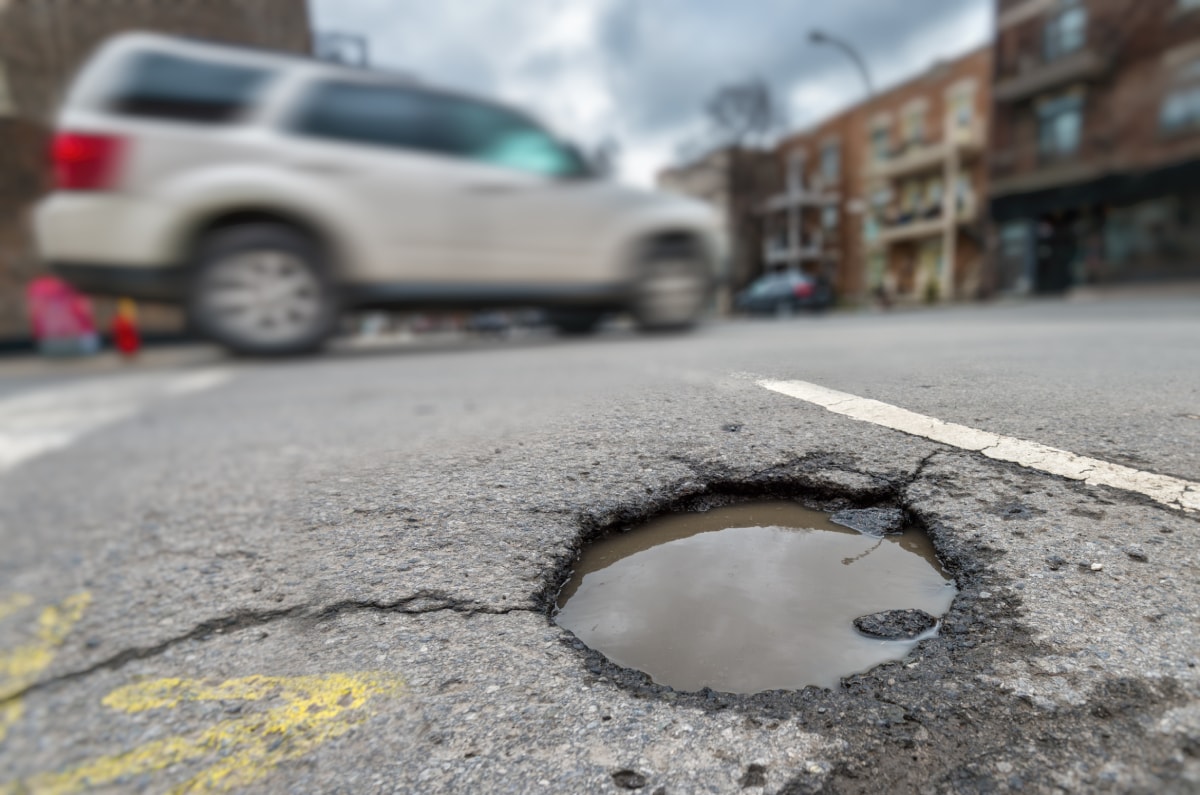It is supposed to be a smooth driving experience going to your friend’s house; well, not until you experience that familiar jolt caused by a pothole. Potholes are holes or depression in the surface of the road, typically with asphalt pavement. It doesn’t just make your driving experience bumpy, but it can also put your vehicle, your life, and your wallet at risk. According to a survey, with about 33,000 traffic fatalities each year in the US, one-third of it involves poor road conditions. Apart from that, the annual cost for car repairs caused by rough pavement and potholes for individual motorists is about $377.00.
The unexpected jolt that you experience when your car run over a pothole can cause more damage to your vehicle, such as:
- Flat tires and wheel damage
Your tire is the first feature of your car to hit a pothole, and the impact on it may be severe, especially if you are driving at high speed. Your tire can get punctured and blowout. Aside from damaging your tire, it can also cause your car to lose control and may veer in different directions resulting in an accident. Most modern cars have aluminum-based wheel rims that can get damaged, bent, or cracked as your tire hits a pothole.
- Suspension damage
Your car’s suspension is designed to help provide a smooth driving experience by absorbing a running car’s vibration. However, if your car keeps running into potholes, the ball joints, shocks, steering linkage, and other suspension parts can break or misalign. A replacement for a broken steering linkage can cost at least $75, depending on the car’s model.
- Steering misalignment
Another part of your car that can get affected with running over a pothole is the steering assembly. If the impact is strong enough it can cause misalignment, increasing tire wear and the risks of accidents.
- Exhaust system damage
Potholes are typically bigger than 7cm in diameter and more than 5cm deep. When your car runs over a deeper pothole, the car’s muffler or catalytic converter may come in contact with the edges of the road’s depression, scraping it. When this happens, your engine will be at risk of damage or your family’s health with carbon monoxide poisoning due to leaking fumes.
- Undercarriage damage
Another exposed part of your car that will be affected when you drive over a pothole is the undercarriage, especially if your car will bottom out. It is found right below the car’s main body, and due to its close proximity to the road, it can get scraped or punctured when it hits a pothole. Leaking fluid promotes rusting and causes more serious car problems.
Unfortunately, it is hard to avoid potholes. If you accidentally run over a pothole, make sure to park in a safe place and inspect the severity of the damage. Then bring your car to a professional mechanic as soon as possible.




